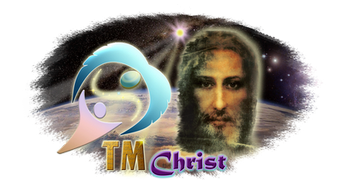Being a completely new social institution, we will have to invent the Clinics from what we find in existing cultural and social resources; and submit those inventions to examination and validation by the criteria of the seven values of social sustainability. Further, the first Clinic will be a prototype and learning device to improve its operation by learning what problems must be resolved that cause any impediment to the effectiveness of “second generation” clinics.
Social Science and Indigenous Wisdom Research Teams
Social Science Research Team. The First Team Facilitator should be a bilingual (English-Spanish) social scientist capable of literary and field research. In this research there is no hypothesis to prove. Literary research has two functions: First, search the literature for the most accurate descriptions of human development eras from pre-conception through the approximate age of 25 when the brain has fully matured. Second, research the literature for the best practices for each of those developmental eras.
Indigenous Wisdom Research Team. These teams, too, will come under the facilitation of the Research Team Facilitator. (Teams: Spanish, beginning in Colombia, South America; English, beginning in Colorado, the United States, and Cape Town, South Africa.) The function of Indigenous Teams is to interview individuals of all ages to discover the “best indigenous practices” for newborn, infant, childhood, adolescent, and early adulthood eras that lead to capable, competent, curious, contented, and socially responsible individuals. Perhaps the best place to start is with individuals who have demonstrated or have experienced those criteria in their lives. These findings, too, must be validated by the criteria of the seven values of social sustainability.
Social science literature and Indigenous research findings will be sent to the Library for organization, cataloguing, storage, and retrieval that will be available Local Community Design and Validation Teams, and others, for use in socially sustainable projects.
Writing Multi-media Instruction Manuals
Because these materials are based on the values that are universal and innate to all people of every race, culture, ethnicity, nationality, and gender the core training materials will be applicable to all settings where human social enculturation, education, and training occur.
Language sets. 1st Set: English, Spanish, Portuguese, French to cover all of North and South America, the UK, Australia, and New Zealand; India, Japan, and Korea already use English extensively, as do the Nordic Countries and South Africa. 2nd Set: German, Russian, Italian, Turkish. 3rd Set: Modern Standard Arabic, Farsi, and Mandarin — 90% of the world population
Instructional materials will be developed from Social Science research, and become culturally specific from the Indigenous Research wisdom-gathering materials, beginning with English and Spanish cultures.
First trainees will become the trainers of the first Clinics. Training trainers will become a developmental process of create-test-revise-test and so on.
All eras of human development. Instructional materials will be developed for each era of human development from pre-conception through age 25, beginning with couples who are preparing for their first child, pregnancy, newborn, first week, first month, etc., to age 20. It is my belief that the emphasis on late pregnancy, newborns, the first month, and the following two years of life should be oriented toward all efforts to have the infant feel safe in their new environment. Feeling safe underlies the development of trust in their physical safety of their new environment that is necessary to support the innate secondary values of empathy, compassion, and “Love.” For the newborn everything around them has to potential to be interpreted as life threatening. Trust is the vital and essential value/state that eventually leads to trust in intra- and inter-personal relationships all through life. Intimacy and love are not possible without trust.
The first phase of instructional materials will be for parents-to-be, and parents. The second phase of instructional materials will be for children.
Public and private educational settings. These materials will also be developed for suitable application in private and public educational settings from diaper-daycare through secondary education. Further consideration will be given to the development of community college level and university level academic degree programs for social sustainability in the areas of the social-societal, political-governmental, financial-economic, and ethics and morality.
